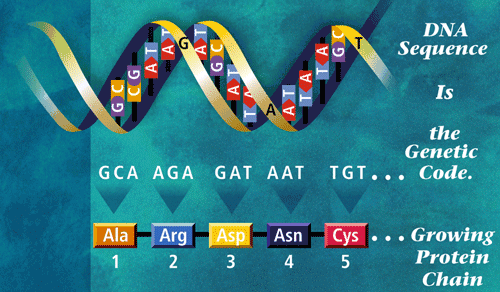
Pharmacogenomics: Using DNA to Save Lives
TimeLine
460- Hippocrates:
Father of Greek Medicine
He begins the scientific study of medicine. He is influencetial in learning of medicine and popularity (2).
300- Diocles:
wrote first known anatomy book
He is one of the first to document medical techniques and was a great example for other generations. He also helped to understand the history of medicine (2).
1200s-
Drug Stores in Europe
Drug stores allowed for a greater interest in medicine and medical techniques spread. They also allowed for greater spread of medicines and treatments (1).
1590- Zacharius Jannssen:
invents the microscope
Jannssen helped to create more interest and advancement to the scientific field. He also helped to create a scientific field, microbiology (2).
1605- Louis Herbert: collected and used different pharmaceutical techniques
He allowed for a great diversity and sharing of scientific ideals. He also showed the importance of communication (1).
1729-
First U.S. Pharmacy founded by Christopher Marshall
This allowed for the average person to be able to participate in medicine. It also allowed for the medical field to spread in importance (1).
1752-
First Hospital Pharmacy by John Morgan
It allowed for the average person to receive personalized, proper medical procedures. It increased the life expectancy rate (1).
1852-
American Pharmaceutical Association founded
This is an important event, because it showed the importance and growing advancements in the fields of medicine and pharmacy. It also allowed for proper pharmacy procedures to be established (1).
1852-
first attempt to standardize pharmaceutical medicines
This is essential due to the fact that it allows for equal treatment. It also allows for people to be confident in what they are receiving (1).
1866-
Gregor Mendel:
discovers the basic principles of genetics
Mendel transformed genetics and what was understood. It allowed for better understanding and future experimentation (3).
1869-
Fredrick Miescher:
identifies “nuclein”
It allowed for greater discovery and understanding for DNA and the genetic field. It created room for future study (3).
1894- first biological medicines
It allows for greater scientific advances and to ease treatments and symptoms. It continues to change the medical field and diagnoses (1).
1902- Arhibald Garrod:
associates Mendel’s theories with human disease
Garrod created better hygiene and helped to prevent the spread of disease. (3).
1942-
Pharmacy Industry Modernized
It filled a growing gap in the medicine field and increased confidence in the medical industry. It allowed for more precise and accurate treatment (1).
1944- Oswald Avery:
identified DNA as transforming principle
Avery showed the importance of DNA and his work helped lead to more DNA experimentation and interest (3).
1950- Erwin Chargaff:
discovered that DNA composition is species specific
This was essential to the understanding of DNA of all organisms (3).
1952- Rosalind Franklin:
photographs crystallized DNA fibers
It helped to understand the basic function of DNA and its use. She was one of the first prominent women in the history of DNA (3).
1953- James Watson and Francis Crick: discover the double helix structure of DNA
It allowed for greater experimentation and study. Through the understanding of the structure, DNA’s importance and role in every aspect of life could be understood (3).
1959- An additional copy of chromosome 21 linked to Down's syndrome
This discovery helped treat those with this genetic disorder and help in understand how it works. Also, it helped develop treatments that helps those who have this disorder (3).
1965- Marshall Nirenberg:
the first person to sequence the bases in each codon
Nirenberg’s discovery increased knowledge about the complexity of DNA. Likewise, providing intelligence on DNA inspiring future generations (3).
1977- Frederick Sanger:
develops rapid DNA sequencing techniques
Sanger allows for DNA to be investigated quickly and accurately. This event further propelled interest in DNA and the genetic field (3).
1983- Huntington's disease is the first mapped genetic disease
It helped to create mass, accurate knowledge among the human population and gave hope to others dealing with diseases that diseases could one day be understood or stopped altogether (3).
1999- First human chromosome is decoded
An example of a great achievement in scientific history and proof of what mass communication and research can lead to (3).
2003– The Human Genome Project is completed
This project greatly impacted and massively changed the scientific field by supporting the understanding of the human body and its relations to other organisms (3).
2006- First vaccine to target a cause of cancer
This invention created hope for many in difficult medical situations and led to other important treatment and prevention techniques for cancer and diseases (2).
2013– DNA Worldwide and Eurofins Forensic discover identical twins have differences in their genetic makeup
Essential to not only the medical field, but also, the identity of the twins, this discovery helped to increase knowledge about twins (3).











(16)















(29)